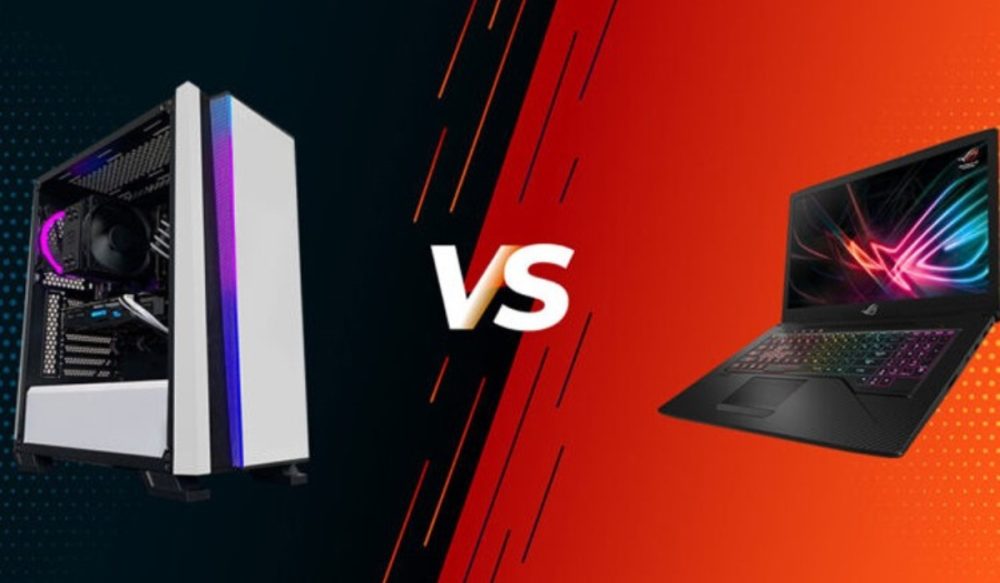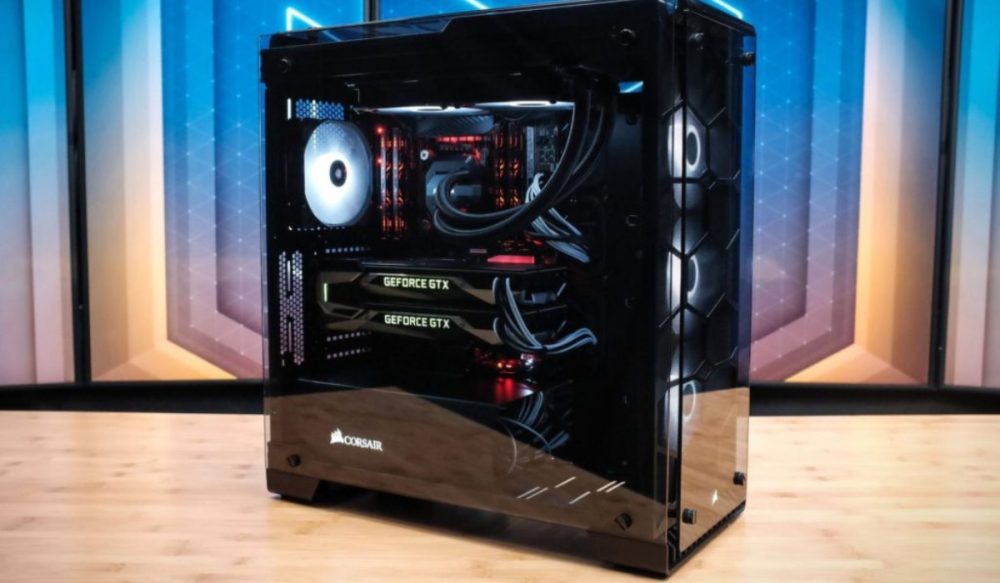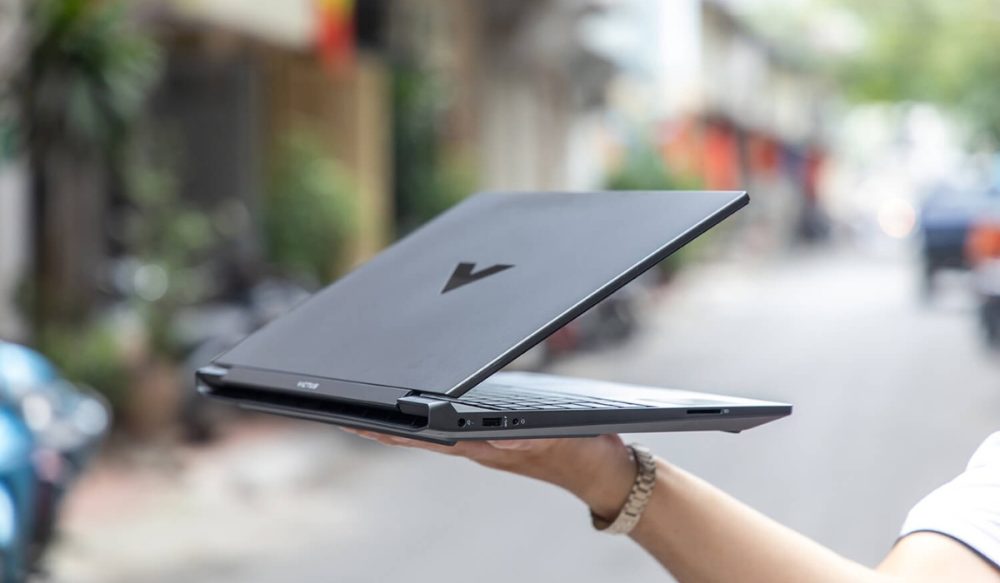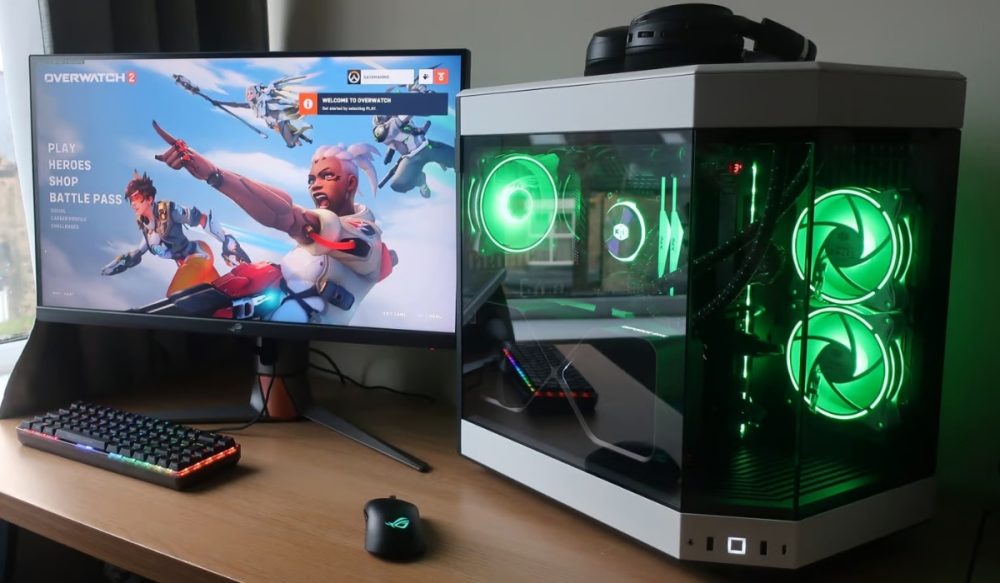
Gaming has fast become one of the most popular types of entertainment, necessitating the use of powerful computers capable of meeting the demands of modern games. The market is by two types of computers: gaming laptop vs gaming desktop. Each has advantages and disadvantages, and whatever one you choose can have a huge impact on your gaming experience.
With the popularity of gaming laptops and desktops, players may now enjoy their favorite games at any time and from any location. The common feature of gaming computers is that they all have like quick RAM, strong processors, and dedicated graphics cards since they are designed for high performance and can easily handle even the most demanding games. An advanced cooling system and a high refresh rate display also provide an excellent gaming experience for gamers.
However, the pros and cons of gaming laptop vs desktop continue to perplex gamers, making the choice a headache. Through this article, we hope to somewhat assist gamers in selecting a suitable computer, thereby enhancing their gaming experience.
Table of Contents
Gaming Laptop:
Pros:
- It is movable and useful anywhere
- Space-Efficient: Takes up less space and doesn’t require a dedicated workspace
- Can be used without external power source outdoors
Cons:
- Limited upgradeability
- Restricted room for cooling
- More expensive than desktop computers with comparable specs
Gaming Desktops:
Pros:
- Achieves high performance for resource-demanding games
- Easy to replace and upgrade components
- Effective cooling systems for heat dissipation
Cons:
- Not as flexible as laptops, challenging to move around
- Consumes more power
- Needs a dedicated workspace
Gaming Laptop vs Gaming Desktop: Performance

Currently, there are many high-performance gaming laptop models equipped with modern technology that can compete with dedicated gaming PCs on the market. However, even with comparable specifications, PC performance is still superior, due to better heat dissipation and power supply capabilities. Therefore, during prolonged gaming sessions, a gaming PC is undoubtedly smoother, and handling tasks like design, video editing, rendering, etc., is not an issue.
On the other hand, gaming laptops are designed for portability and compactness. Reduced size and limited airflow can constrain their processing capabilities, even with powerful configurations.
Gaming Laptop vs Desktop: Noise, Heat, and Power Consumption
Gaming laptops often face challenges with noise and temperature due to their slim and lightweight design, which limits their cooling capabilities. This can lead to louder operation and quicker heat dissipation, especially when running graphics-intensive applications.
Conversely, gaming desktops can typically integrate powerful cooling systems and have enough space for efficient heat dissipation. This helps reduce noise levels and maintain stable temperatures, creating a quieter working environment.
In terms of power consumption, gaming desktops usually consume more power due to their ability to upgrade components and use high-performance parts. Gaming laptops, while consuming less power, often operate at high power levels to meet the demands of resource-intensive applications and games.
Gaming Laptop vs Desktop: Portability

The mobility of gaming laptops is one of their key advantages. With this portability, gamers can travel, visit friends, or attend parties while still enjoying their games. In summary, you can play games anywhere you want with a laptop because you’re not confined to one location.
Gaming desktops are much larger than gaming laptops and are nearly impossible to carry around because they require power outlets and a monitor.
Configuration and Upgradability
Gaming laptops or desktops both offer flexible software setup, relatively easily achievable through pre-installed software or additional installations. However, desktops have a more straightforward capability for hardware upgrades and replacements such as Central Processing Unit (CPU), Graphics Processing Unit (GPU), Random Access Memory (RAM), Solid State Drive (SSD), or Hard Disk Drive (HDD), Motherboard (in some cases), and Power Supply Unit (PSU).
While gaming laptops can now be upgraded more easily than before, they still face limitations compared to desktops. Certain components, such as the CPU and GPU, are often soldered onto the motherboard due to size constraints and design limitations, making them non-upgradable. Furthermore, spatial constraints may hinder the feasibility of increasing RAM or storage capacity.
Gaming PC vs Laptop: Design

Gaming laptops have an eye-catching design and high portability due to their thin and lightweight materials, allowing gamers to effortlessly switch between gaming at home and on the go. Although heavier than laptops, gaming desktops can be placed anywhere. They adapt to different room configurations by being positioned on a desk, table, or even under a workstation. Gaming desktops also feature a rugged design, embodying the essence of gamers.
Gaming Laptop vs Gaming Desktop: Price
In terms of cost, gaming laptops vs gaming desktops then the gaming laptops are usually more expensive. This is because high-performance gaming in a small form factor requires specialized components and a compact design. High-end gaming laptops can cost well over $3,000, with most models starting at over $1,000. Conversely, entry-level gaming desktops can cost as little as $500, while top-tier configurations might cost as much as $5,000.
When considering value and performance within budget constraints, gaming desktops generally offer more bang for your buck.
Gaming Laptop
- $1,000 to $1,500 for a gaming laptop at entry level
- Gaming laptop in the midrange: $1,500 to $2,500
- Premium gaming laptop: starting at $2,500
Read more: Best Gaming Laptop Under $2000
Gaming Desktop
- Desktop gaming for beginners: $500 to $1,000
- Desktop for mid-range gaming: $1,000 to $2,000
- Premium gaming desktop: starting at $2,000.
Conclusion
The decision between a gaming laptop vs gaming PC is subjective and based on your requirements and preferences. A gaming laptop is a wonderful option if you’re searching for a gaming PC that you can carry with you wherever you go. A gaming desktop is a better choice, though, if you want the highest performance and upgradability available. The budget you’re willing to spend is also a crucial factor in your decision. I hope you find the perfect gaming computer for yourself soon.
